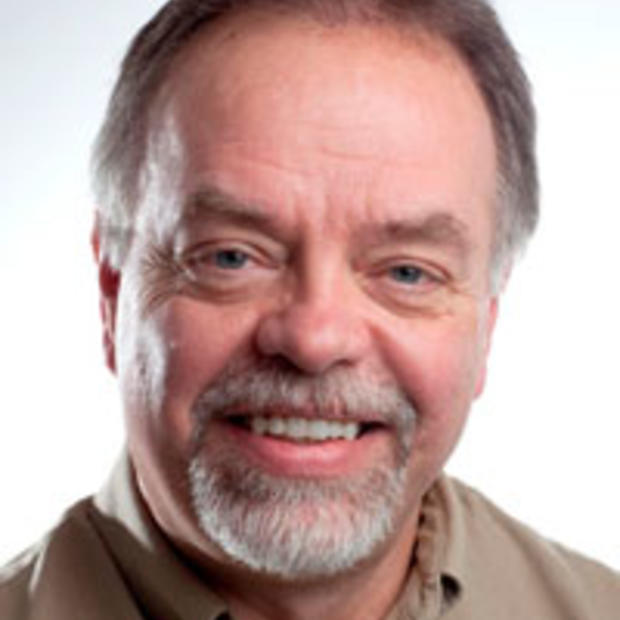As much credit as the Seahawks' current regime has been given regarding NFL draft picks, it's probably a good thing they traded away their No. 1 draft pick in the Thursday draft. The top end of the pro game's annual Christmas has often been cruel to Seattle; a pinata filled with as many dung beetles as road graders.
The first round has been disappointing as much as dynamic for the Seahawks. From their 1976 pick of Notre Dame defensive tackle and injury-plagued Steve Niehaus (second overall) to 2012, when general manager John Schneider out-guessed himself on Alabama's James Carpenter (once a tackle, now an oft-injured guard).
This time around, the Seahawks were so confident in their personnel build-out that they swapped their top pick – 25th overall – as part of the trade with Minnesota that brought wide receiver Percy Harvin. It's the kind of move a championship-caliber team can make when it has lured a prime-time game-breaker after determining its future is right bloody now.
At the moment, the Seahawks are the last NFL team who will make a choice, and that won't happen until Friday's second round, when they pick 56th overall. How will Schneider sit out the Thursday dance?
"Maybe we'll just sit around and watch Percy Harvin videos on YouTube," Schneider said, laughing with reporters recently at team headquarters. He jokes because, for perhaps the first time in club history, there is no screaming need for a high-end player to fill a specific position right away.
Schneider won't say such a thing because it sounds too Jim Harbaugh-ish. Truth is, the Seahawks parlayed a breakout year of 12-6, a splendid, inexpensive quarterback and room under the salary cap to draw premier talent to Seattle for a season that many think will end in February at the first Super Bowl in New York.
"You get to a certain point in the draft where I think you could kind of take a deep breath, just feel good about your preparation and go," he said. "I think we’re at that point."
That translates to Schneider, with 10 picks over the final six rounds, presiding over a special-teams cattle call. It's not that the Seahawks couldn't use another offensive lineman or outside linebacker, but there's no particular need that could trump a quality player at another position who tumbles unexpectedly past 55 others into Schneider's lap. Call it, from the third round a year ago, the Russell Wilson Effect.
Another way to look at it is that, at No. 56, there's a lot less pressure. Schneider's experience here as well as at Green Bay has given him a few lessons in managing his expectations and judgments.
"There are certain things that you tell yourself – like, if you’re not running a draft: ‘Man, when I’m running a draft, I’m going to do this,'" he said. "Then the mistakes that we’ve made – or perceived mistakes – have been things where I’m trying something that I probably shouldn’t have."
A couple of lessons were learned.
"One was comparing a player to another player that we’d had in the past," he said. "You never know what’s in somebody’s heart, so you can’t do that. The other was just assuming that a player was completely locked away [solid] from a football standpoint, because he’s been productive, squared away and confident. But maybe we didn’t know him as well as we possibly should have.”
"That upsets me because we pride ourselves on continuing to ask questions along the way and never feeling like we have somebody locked up, like we know everything about them. Because we continue to learn stuff about these guys in their second, third and fourth years now.”
Even though the choice was made on the watch of his predecessor, Tim Ruskell, there is one prime example of Schneider's draft anxiety. Aaron Curry, the Seahawks' first-round pick in 2009, was fourth overall. Labeled the draft's safest, most reliable pick by more than Ruskell, the Wake Forest linebacker never did get it.
Frankly, he seemed neither smart enough nor tough enough for the job. The Seahawks traded him in 2011 to Oakland for low-round draft picks, and he was waived by the Raiders Nov. 20. The Curry bust was among the last straws for Ruskell's tenure, which helped usher in Schneider and coach Pete Carroll.
The Curry choice was a long time ago and the Seahawks' arrival among NFL elites seems abrupt. Still, it has been a steady, evolutionary acquisition of players to match a vision that allows Schneider the extraordinary luxury of putting up his feet Thursday and not feeling guilty about it.
Sitting out also gives longtime Seahawks fans a little relief from first-round grief. For those who still need the fix of the familiar Seattle sports anxiety, they can simply move one stadium over. Big supply.


